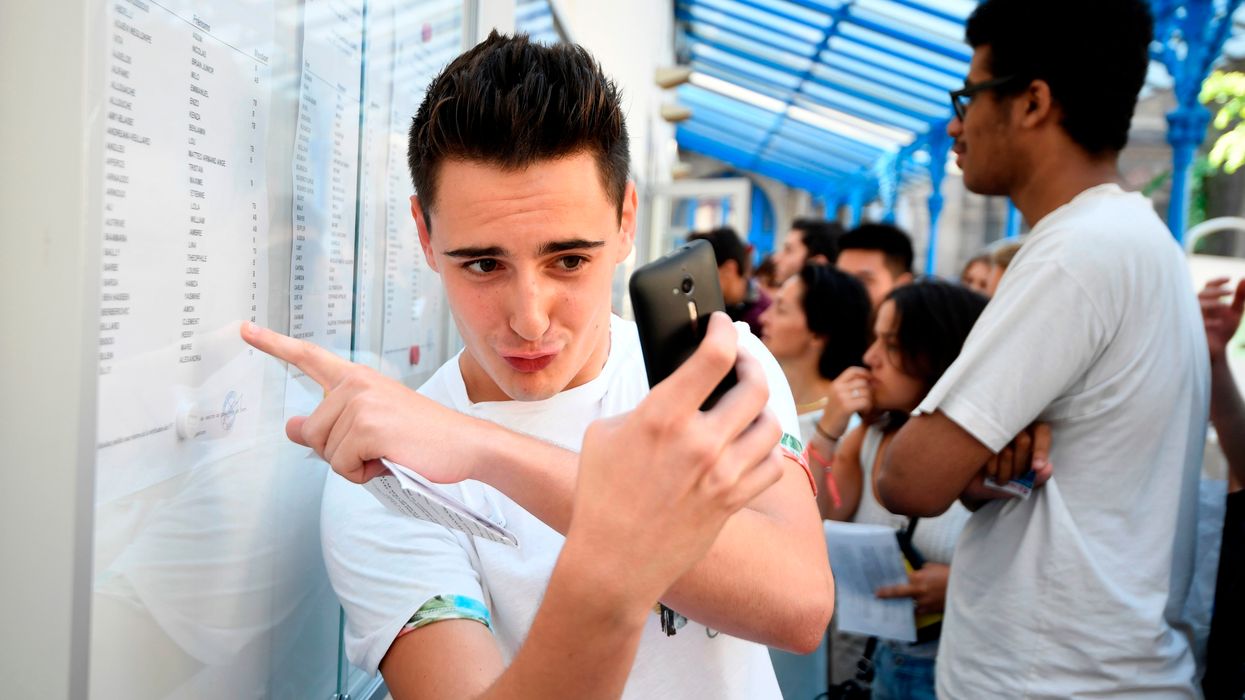
Photo by ERIC FEFERBERG/AFP/Getty Images

Frightening prospect
Schools in several districts across Michigan have banned the use of cellphones on the property, and some administrators are finding that the move has resulted in an odd phenomenon: face-to-face communication between students.
The bans vary from school to school — some schools are barred from carrying and using cellphones at any point during the school day, including in hallways and during lunch periods.
According to Michigan's Bridge, many students think the ban goes too far — but it's giving school officials thoughts of yesteryear when teens actually spoke to one another on an in-person basis.
"I'm addicted," senior Jack Walls told the outlet. "I know it. It's real bad. I have a real bias for texting people."
He added, "I think [the ban] is bad. It's probably good for me, but it's not what I feel I need."
Grant Cardin, another district senior, said that he believes the ban is a "bit much."
"We can't even use our phones at lunch," Cardin explained, adding that it made sense for the classroom. He also pointed out that it makes the logistics of figuring out after-school difficult, saying it "complicates things."
Cardin did admit, however, that seeing students speaking face-to-face has been a novel concept.
"I can see a few groups that instead of staring down at their phones like they did before, they are kind of doing a lot more talking to each other," he said. "That's different."
Parent Amy Sjolin is totally on board, calling the ban a "fantastic idea."
"I think the phones are a huge distraction, with the Instagrams, the memes, all the nonsense that goes on," she added.
Another parent, Tamera Laage — who was instrumental in recommending the district ban — said that a phone-free zone could enhance students' communication with one another.
"When you are texting, you miss the context, you miss the voice inflection, the little things that make conversation meaningful, that human connection," Lagge said. "We learn a lot from each other by actually conversing."
Forest Hills Superintendent Dan Behm, a proponent of the ban, said that cellphones are disrupting the educational experience.
"The regularity of a cellphone disrupting a student's ability to focus on something is as damaging as having a loud noise, a train engine, randomly disrupting instruction in the class," he said. "It has become clear that excessive exposure to cellphones has a negative effect on school-aged children."
Behm also said that the ban seems to be working well so far.
"I've been hearing that students at lunch are making eye contact and talking face to face," he marveled. "Older adults might not think that is news. But I can tell you from my own experience, it is different."
One adult not on board is Liz Kolb, a clinical associate professor of education technologies at the University of Michigan's School of Education.
"I'm not a proponent of an all-out ban," Kolb told the outlet. "They just tend not to work. I'm not a proponent of a free-for-all, though."
Sarah Taylor
Sarah is a former staff writer for TheBlaze, and a former managing editor and producer at TMZ. She resides in Delaware with her family. You can reach her via Twitter at @thesarahdtaylor.